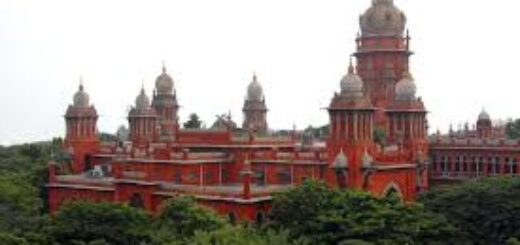The Gauhati High Court stated that no case should be sent to Lok Adalat unless all parties have been given a fair chance to present their side.

The Gauhati High Court ruled that no case should be sent to Lok Adalat by any Court without first giving the parties involved a fair chance to be heard. The High Court was reviewing a petition filed under Article 227 of the Constitution to annul the Lok Adalat’s decision made by the District Legal Service Authority according to Section 19 of the Legal Services Authority Act, 1987. Justice Marli Vankung, on the Single-Judge Bench, stated that the petitioner was not a party in the ongoing Civil Suit No. 6/2009, and thus did not have the opportunity to present her case.
The case details showed that the current respondent No. 1 owned a property, and Pachhunga, the deceased husband of the petitioner, had borrowed Rs. 5 lakhs from respondent No. 4 by mortgaging that property. Respondent No. 1 then filed a Civil Suit to reclaim his property, naming the current respondents as defendants. During the Civil Suit, the petitioner’s husband passed away, but no application for substitution was filed. Later, the Senior Civil Judge referred the case to Lok Adalat, resulting in the contested award. The petitioner argued that the Lok Adalat Award should be annulled because the Civil Suit was referred without including her as a party. She claimed that she was forced to attend Lok Adalat under police pressure and was made to sign the award without fully understanding its terms.
Lianhrima argued that the petitioner came to the Court nearly 3 years late. It was also stated that according to Section 22 of the Legal Services Authority Act, 1987, Lok Adalat can summon witnesses, enforce their attendance, and set its own procedures for resolving disputes. Since the Civil Revision Petition was filed under Article 227 of the Constitution, which has no time limit, the Bench decided to review the petition based on its merits. The Bench noted that, according to sub-section 5 of Section 19 of the Legal Services Authority Act, no case should be sent to Lok Adalat without giving the parties involved a fair chance to be heard.
The High Court clarified that Section 22 grants Lok Adalat the same powers as a Civil Court under the Civil Procedure Code, including summoning witnesses and examining them under oath. In this case, the petitioner was not a witness but a party in the Lok Adalat proceedings. The Bench pointed out that while Sub-section 2 of Section 22 allows Lok Adalat to set its own procedures, it cannot create procedures that contradict Sections 19 and 20 of the Act.
In this situation, summons were sent to the petitioner via the OC Police Station Bawngkawn, indicating that the petitioner felt pressured to attend the Lok Adalat. Therefore, the Bench annulled the Lok Adalat Award and sent the Civil Suit back to the Senior Civil Judge.
Cause Title: Smt. Sangluri Kolasib Venglai v. H. Lalhmingmawia and 3 Ors [Case No. : CRP/1/2022] Appearance:
Petitioner: Advocate Lalremtluanga
Respondent: Advocate Dinari T. Azyu









